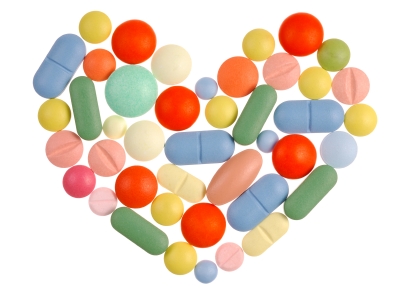dimecres, 15 de febrer del 2012
"The areas of the brain activated by intense love are the same areas that drugs use to reduce pain"
"There is intense activation in the reward area of the brain—the same area that lights up when you take cocaine, the same area that lights up when you win a lot of money."
There's nothing quite like the feeling you have in those first nine months of being in love. It's positively blissful, almost as if you've taken some sort of mind-altering substance that ups your sense of joy and dulls your sense of pain. As it turns out, that's not terribly far from the truth; new research reveals how the feelings of intense romantic love can actually reduce the sensation of physical pain, harnessing the same neural pathways used by more traditional painkillers.
Researchers selected volunteers for the study who were in the first nine months of a relationship, reasoning that in this early period, the sense of euphoric limerence is highest. They then scanned the brains of the subjects using fMRI while the volunteers were either looking at a photo of their beloved, looking at a photo of an acquaintance who was similar to their partner, or performing a word association task. While doing each of these things, the volunteers received a small jolt of pain on the hand, and were asked to report just how much it had hurt.
The researchers found that, although the word association task also numbed the pain by distracting the cognitive parts of the brain, looking at one's beloved reduced pain by a distinctive pathway: activating the reward centers of the brain much as opiates do. Love, like heroin, blasts you with dopamine. And, of course, withdrawal from that dopamine surge helps to explain why falling out of love hurts so much—it's going cold turkey.
"The areas of the brain activated by intense love are the same areas that drugs use to reduce pain," Arthur Aron, a professor of psychology at the State University of New York at Stony Brook and coauthor of the new study, said in a prepared statement. "There is intense activation in the reward area of the brain—the same area that lights up when you take cocaine, the same area that lights up when you win a lot of money."
Dopamine, oxytocin, vasopressin, and all the other brain chemicals that contribute to the feelings we have while in love serve a critical evolutionary purpose, cementing families together. The exhilaration of romantic bonding helped, and still helps, our species to thrive. If love is a drug, it's a drug that helped make humanity what it is today. Not such a bad addiction, after all.
Source:
http://www.beinghuman2012.org/news/2012/02/14/love-is-the-drug-im-thinking-of/
Subscriure's a:
Comentaris del missatge (Atom)













Cap comentari:
Publica un comentari a l'entrada
Què t'ha semblat el post? (Només s'acceptaran comentaris d'usuaris registrats)